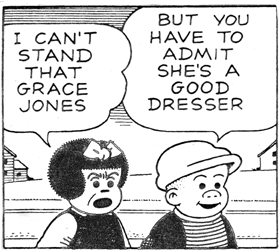1may
verbal auxiliary \ˈmā\
past might \ˈmīt\ present singular & plural may
CloseStyle: MLA APA Chicago

Definition of MAY
1
a archaic : have the ability to b : have permission to <you may go now> : be free to <a rug on which children may sprawl — C. E. Silberman> —used nearly interchangeably with can c —used to indicate possibility or probability <you may be right> <things you may need> ; sometimes used interchangeably with can <one of those slipups that may happen from time to time — Jessica Mitford> ; sometimes used where might would be expected <you may think from a little distance that the country was solid woods — Robert Frost>
2
—used in auxiliary function to express a wish or desire especially in prayer, imprecation, or benediction <may the best man win>
3
—used in auxiliary function expressing purpose or expectation <I laugh that I may not weep> or contingency <she'll do her duty come what may> or concession <he may be slow but he is thorough> or choice <the angler may catch them with a dip net, or he may cast a large, bare treble hook — Nelson Bryant>
4
: shall, must —used in law where the sense, purpose, or policy requires this interpretation
See Usage Discussion at can
Origin of MAY
Middle English (1st & 3d singular present indicative), from Old English mæg; akin to Old High German mag (1st & 3d singular present indicative) have power, am able (infinitive magan), and perhaps to Greek mēchos means, expedientFirst Known Use: before 12th century
Rhymes with MAY
a, ae, bay, bey, blae, brae, bray, chez, clay, Cray, day, dey, dray, eh, fay, fey, flay, fley, frae, fray, Frey, gay, Gay, gey, gley, gray, hay, he, hey, Hue, j, jay, Jay, k, kay, Kay, lay, lei, nay, né, née, neigh, Ney, pay, pe, play, pray, prey, qua, quai, quay, Rae, ray, re, say, shay, slay, sleigh, spae, spay, Spey, splay, spray, stay, stray, sway, Tay, they, tray, trey, way, weigh, whey, yea [-]hide
[-]hide
a, ae, bay, bey, blae, brae, bray, chez, clay, Cray, day, dey, dray, eh, fay, fey, flay, fley, frae, fray, Frey, gay, Gay, gey, gley, gray... [+]more
a, ae, bay, bey, blae, brae, bray, chez, clay, Cray, day, dey, dray, eh, fay, fey, flay, fley, frae, fray, Frey, gay, Gay, gey, gley, gray... [+]more
2may
noun \ˈmā\
Definition of MAY
archaic : maiden
Origin of MAY
Middle English, from Old English mǣg kinsman, kinswoman, maidenFirst Known Use: before 12th century
I fail to see why some may have a problem understanding this term.







